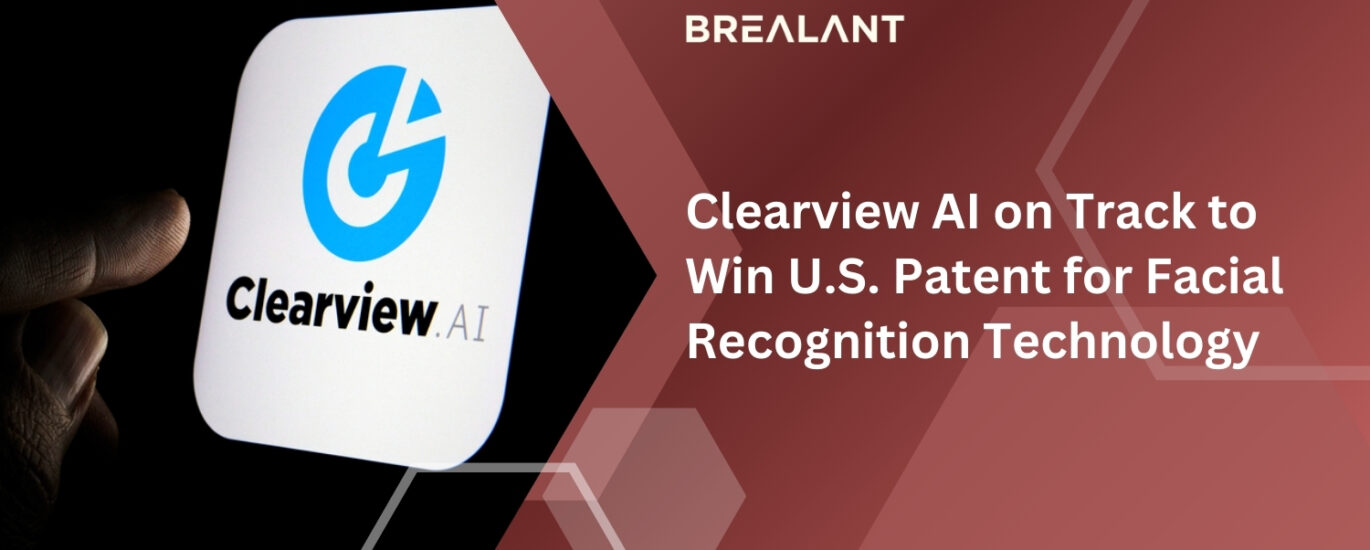



Clearview AI is set to gain a U.S. patent for its facial recognition technology in a move that could greatly impact privacy laws and artificial intelligence regulation. The business, whose data-gathering methods have drawn criticism, has created a sophisticated AI system that can recognize people from enormous picture databases. Even while this technological breakthrough is amazing, society must address the ethical, legal, and privacy issues it brings up.
Clearview AI is a facial recognition startup that builds a vast database of faces by scraping publicly accessible photos from news websites, social media, and other online sources. Then, in seconds, its program matches a face in an uploaded photograph with those in its database using artificial intelligence. For law enforcement organizations, this has made it an invaluable tool for locating suspects, identifying victims, and resolving crimes.
However, privacy groups are concerned about the company’s data harvesting methods. In contrast to other face recognition companies that use photographs that have been properly sourced, Clearview AI’s technology collects billions of images from the internet without user authorization, which has drawn regulatory attention and several legal challenges.
Obtaining a U.S. patent for Clearview AI’s face recognition system would strengthen its position as a market leader and give it legal defense against rivals attempting to copy its technology. The patent would cover Clearview AI’s novel approach to leveraging artificial intelligence for picture collection, processing, and matching.
This patent’s acceptance may also mark a change in the American government’s perspective on facial recognition technology. Although continuous legal challenges from advocacy organizations, government agencies, and social media firms alleging the company has broken data privacy regulations, granting it would imply an acceptance of the validity of Clearview AI’s methodology.
The possibility of abuse of Clearview AI’s technology is among the biggest worries. According to civil rights organizations, it can be used to monitor and restrict people’s freedom of speech and movement. Additionally, because of AI biases, communities of color have been disproportionately affected by unlawful arrests caused by false positives in face recognition.
Clearview AI has been the target of several lawsuits, mainly under Illinois’ Biometric Information Privacy Act (BIPA), one of the country’s most stringent biometric privacy regulations. According to the law, businesses must have express authorization before gathering biometric information. In some places, including the European Union and Canada, Clearview AI has been hit with steep fines after regulators declared its operations unlawful. The patent’s acceptance might support its claim that its technology is inventive and legitimate despite these legal obstacles. However, changing privacy rules to accommodate new AI technology would not necessarily shield it from additional litigation.
The capabilities of Clearview AI have piqued the curiosity of U.S. law enforcement authorities, which have used the technology to solve crimes ranging from human trafficking to stealing. Critics contend that it opens the door for unbridled government surveillance despite its obvious efficacy in solving crimes.
Clearview AI has been employed by the FBI, Immigration and Customs Enforcement (ICE), and many police agencies nationwide. The technique may become more widely used if the patent is approved, even reaching private businesses, security organizations, and even foreign governments in addition to law enforcement. Concerns around responsibility, supervision, and consent are brought up by the possibility of broad face recognition use. Should private businesses be able to follow people without their consent? Who makes sure the technology is applied morally? Politicians need to address these urgent challenges as facial recognition technology becomes more commonplace.
At a time when governments around the world are debating how to regulate facial recognition technology, Clearview AI’s patent may be approved. Some U.S. towns have already prohibited government entities from using it, including Portland and San Francisco. The European Union is now debating more stringent rules that would restrict the use of AI-powered monitoring technologies. Clearview AI may pressure authorities to expedite the creation of precise regulations for the application of facial recognition technology if it is successful in obtaining its patent. This might consist of:
∙Stronger regulations governing data privacy: guaranteeing that people can choose not to be included in face recognition databases.
∙Requiring businesses to reveal how they gather and utilize face data is a transparency requirement.
∙The creation of impartial oversight committees to control the moral use of AI in surveillance.
Clearview In the continuing discussion surrounding face recognition technology, AI’s upcoming patent clearance marks a turning point. Even if its advances have the potential to improve law enforcement skills and expedite identification procedures, they also present difficult moral and legal issues that society must resolve. As facial recognition technology develops further, legislators, business executives, and civil rights activists must work together to make sure it is applied sensibly and morally. Protect your brand’s image from legal scrutiny with IP experts of Brealant, who are committed to providing you with the best intellectual property advice.